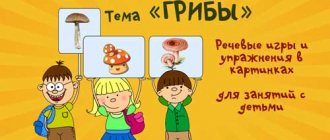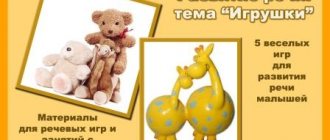Vocabulary games for students and adults
A good level of language proficiency is assumed. The purpose of these tasks is to liberate students and make maximum use of their vocabulary.
"Banana Game"
Such activities are good memory training and learning new words. At the beginning, students read or listen to texts with new words, and at the end of the lesson, a memorization test is carried out. Students are divided into pairs. One of them has a list of fresh vocabulary, the second has a closed textbook. The first one reads the sentence, inserting “banana” instead of the new word, and the second one must guess what the word is based on its meaning.
For example, the City
.
A sentence might sound like this: Beside that, visiting museums and art galleries, exhibitions and theaters, simple “banana” or traveling can be very useful for every boy or girl, if they want to broaden their outlook, to study some subjects profoundly
.
Correct answer: sightseeing
.
"Running Dictation"
A dynamic game for reviewing vocabulary, developing memory and spelling. The class is divided into 2 teams. The text is hung on the board. The “runner” from each team must remember part of the text and “bring” it to a pre-selected “secretary”. Important: you cannot shout or speak the text while walking! The teacher claps his hands and the runner takes over. The first team to write down all the text wins.
"Memory Game"
This game is aimed at practicing the learned vocabulary and practicing phonetics. The teacher prepares sheets of paper with fixed expressions on some topic in advance and cuts them into genders. For example, on the topic “time” run out of time - 2 cards are made from this expression, which will later be laid out in two columns. Other expressions are cut in a similar way.
Students take turns coming up and opening one card from the first column and saying what the continuation should be. Next he opens another card, but from the second column. If you guess correctly, he takes two; if not, he returns both cards back. The team that collects the largest number of stable expressions the fastest wins.
The next block of classes is more entertaining in nature. They are designed to overcome the language barrier and relieve psychological stress among students.
"The crocodile game"
A classic game of crocodile for company. Only participants describe the hidden word exclusively in English. 2 participants are selected by drawing lots. The first one thinks of a word, phrase or stable expression, and the second one shows it without uttering a sound. The rest of the participants guess. The first guesser goes to the center and replaces the showing player, who in turn tells him a new word.
"Cards"
Absolutely any tasks using cards, but in English. They can be selected on a specific topic or be purely entertaining. You can also use online cards.
PS Adult students can use all these games not only in training classes with teachers, but also independently, at home, with friends and in interest groups.
Games for any age and skill level
Each task in this block can be adapted by the teacher to suit different levels of language proficiency, with the exception of the level of preschoolers who cannot write.
"Crossword"
This game is designed for students who are proficient in writing. Its goal is to expand vocabulary and develop competent writing. The tasks can be prepared by the teacher in advance or the task for the students will be a crossword puzzle on a specific topic.
"Fill in the Missing Letters"
This task is often used as an exercise to practice competent writing. The teacher writes words on the board, deliberately omitting letters from them. The words must sound similar, for example, ball
and
doll
,
mystery
and
misery
,
be
and
bee
,
air
and
ear
, and by spelling, for example,
coarse
and
course
,
complement
and
compliment
,
creak
and
creek
.
"Explain the word"
The first participant draws out a card with a picture (or, for example, takes an object out of a bag), but does not show it. Its task is to describe who or what is depicted on the card. Other participants must guess what it is. For example: It's a food. Sweet and cold. Children like to eat it in summer. Made of milk." Whoever guesses goes to describe the next card.
"Rhythme"
The tasks are not only entertaining, but also educational. The teacher calls the word, the students choose a rhyme. It is important to name the rhyme quickly, without thinking. You need to play in a circle, all students participate. The one who named the wrong rhyme or non-existent word is eliminated. For example: slight – right
,
go – slow
,
look – book
, etc.
Complication: you can answer with a rhyme only if the word matches the topic. You can also complicate the task by adding a creative task, namely, from the given words, come up with a poem on a topic, etc. It all depends on the teacher’s training and the level of language proficiency of the students.
"Crossing the river"
This active game will appeal to both adults and children. It is aimed at repeating vocabulary on the topic and practicing the correct pronunciation of words.
Participants are divided into 2 teams. Each team is given the same number of cards. Participants take turns opening cards, naming the item in English or reading its name, and then giving a translation. If the player pronounces and translates correctly, he throws the card on the floor and takes a step forward, stepping onto the so-called “island”. The team that gets to the “shore” first wins.
Oral games
Associations
A game for a large company. The presenter leaves the room for a short time, during which time the others decide which of those present they will wish for (this could be the presenter himself). Having returned, the player asks the others questions - what flower do you associate this person with, what vehicle, what part of the body, what piece of kitchen utensils, etc. - to understand who the mystery is. The questions can be very different - this is not limited by anything except the imagination of the players. Since association is an individual matter and an exact match may not happen, it is customary to give the guesser two or three attempts. If the company is small, you can expand the circle of guesses with mutual acquaintances who are not present in the room at that moment, although the classic version of “associations” is still a hermetic game.
Game of P
A game for a group of four people, an interesting variation on the “hat” theme (see below), but not requiring any special accessories. One player thinks of a word for another, which he must explain to the others, but he can only use words starting with the letter “p” (any except those with the same root). That is, the word “house” will have to be explained, for example, like this: “built - I live.” If you couldn’t guess right away, you can throw in additional associations: “building, room, space, the simplest concept...” And at the end add, for example, “Perignon” - by association with Dom Perignon champagne. If the guessers are close to winning, then the presenter will need comments like “approximately”, “approximately”, “almost correct” - or, in the opposite situation: “bad, wait!” Usually, after the word is guessed, the person explaining comes up with a new word and whispers it in the ear of the person who guessed it - he becomes the next leader.
Lectures for children on this topic:
A course of lectures for children about the languages of the world
How many languages are there in the world, how do they differ and how are they similar to each other?
A course of lectures for children about strange and new words in the Russian language
Why do linguists study jargon, filler words and speech errors?
ABC Trim, alphabet enchanté. Illustrations by Bertal. France, 1861 Wikimedia Commons
Say the Same Thing
A fun and fast game for two, which got its name from the video of the inventive rock band OK Go, from which many learned about it (the musicians even developed a mobile application that helps you play it from a distance, although it is currently unavailable). The point of the game is that on the count of one-two-three, each player pronounces a word of his choice. Next, the goal of the players is to, with the help of successive associations, come to a common denominator: the next time, two, three, both pronounce a word that is somehow connected with the previous two, and so on until the desired coincidence occurs. Let's assume that the first player said the word "house" and the second said the word "sausage"; in theory, they can coincide very soon if on the second move, after one-two-three, both say “store.” But if one says “store” and the other says “refrigerator” (why not a house for sausage?), then the game may drag on, especially since it cannot be repeated - neither the store nor the refrigerator will fit anymore, and you will have to figure out, say, "reefer" or "IKEA". If the initial words are far from each other (for example, “curb” and “weightlessness”), then the gameplay becomes completely unpredictable.
Characters
A game for a group (the ideal number of players is from four to ten), requiring from the participants not only good imagination, but also, preferably, a little bit of acting skill. As usual, one of the players leaves the room for a while, and while he is gone, the rest come up with a word, the number of letters in which coincides with the number of participants remaining in the room. Next, the letters are distributed among the players, and a character is invented for each of them (therefore, words that contain “ъ”, “ы” or “ь” are not suitable). Until the word is guessed, the players behave in accordance with the chosen character - the presenter’s task is to understand exactly what characters his partners are portraying and restore the hidden word. Let's imagine, for example, that a company consists of seven people. One leaves, the rest come up with the six-letter word “old man” and distribute roles among themselves: the first, say, will be with the indoor one, the second will be patient , the third will be secondary, the fourth be cordial, the fifth will the mane, and the sixth will be with the ovarian. The returning player is greeted by a cacophony of voices - their roles until they are solved, and the presenter asks the players questions that help reveal their character. The only condition is that as soon as the presenter pronounces the correct character - for example, guesses the insidious one - he must admit that his incognito has been revealed and announce the number of his letter (in the word “old man” - sixth).
ABC Trim, alphabet enchanté. Illustrations by Bertal. France, 1861 Wikimedia Commons
Find out the song
A game for a group of four to five people. The leader leaves, and the remaining players choose a well-known song and distribute its words among themselves - a word to each. For example, the song “Let there always be sun” is made: one player gets the word “let”, the second - “always”, the third - “there will be”, the fourth - “sun”. The presenter returns and begins to ask questions - very different and unexpected: “What is your favorite city?”, “Where does the Volga flow?”, “What to do and who is to blame?”. The task of the respondents is to use their word in the answer and try to do it so that it does not stand out too much; You need to answer quickly and not at too much length, but not necessarily truthfully. The answers to the questions in this case could be, for example, “It’s difficult for me to choose one city, but let it be Rio de Janeiro today” or “The Volga flows into the Caspian, but this does not always happen, every third year it flows into the Black” . The presenter must figure out which word is the odd one out in the answer and guess the song. They often play with lines from poetry rather than songs.
Tip
A game for four people, divided into pairs (in principle, there can be three or four pairs). The mechanics are extremely simple: the first player from the first pair whispers a word (common noun in the singular) into the ear of the first player from the second pair, then they take turns calling out their associations with this word (in the same form - common nouns; cognate words cannot be used ). After each association, the teammate of the player who voiced it names his word, trying to guess whether it was the one that was originally thought of, and so on until the problem is solved by someone; at the same time, all associations already heard in the game can be used in the future, adding one new one at each move. For example, let there be players A and B on one team, and C and D on the other. Player A whispers the word “old man” into player C’s ear. Player C says "age" out loud to partner D. If D immediately answers “old man,” then the pair C and D have earned a point, but if he says, for example, “youth,” then the turn goes to player A, who, using the word “age” suggested by C (but discarding the irrelevant to the case “youth” from D), says to his partner B: “age, man.” Now B will probably guess the old man - and his team with A will already score a point. But if he says “teenager” (deciding that we are talking about the age when boys turn into men), then C, who has suddenly returned to action, will say “ age, man, eighty years old,” and here, probably, “old man” will be guessed. In one of the variants of the game, it is also allowed to “shout”: this means that, having suddenly realized what was meant, the player can shout out the option on a wrong turn. If he guessed right, his team will get a point, but if he was too hasty in drawing conclusions, his team will lose a point. They usually play up to five points.
ABC Trim, alphabet enchanté. Illustrations by Bertal. France, 1861 Wikimedia Commons
Ministry of Railways
A game for a large company. Here we are forced to warn readers that after seeing this text in full, you will never be able to drive again - the game is one-time only.
Spoiler →
First, the player who gets to lead leaves the room. Having returned, he must find out what MPS means - all that is known in advance is that the bearer of this mysterious abbreviation is present in the room right now. To find out the correct answer, the driver can ask other players questions, the answers to which should be formulated as “yes” or “no”: “Does he have blond hair?”, “Does he have blue eyes?”, “Is he a man?”, “He in jeans?”, “Does he have a beard?”; Moreover, each question is asked to a specific player, and not to all at once. Most likely, it will become clear quite quickly that the person who meets all the criteria is simply not in the room; Accordingly, the question will arise on what principle the players give answers. “An autopsy” of this principle will help answer the main question - what is MPS. The Ministry of Railways is not the Ministry of Railways at all, but my right- hand neighbor ( that is, each player always describes the person sitting to his right). Another option is KOP, who answered last ( , everyone talks about who answered the previous question).
Contact
A simple game that can be played with a group of three people. One person thinks of a word (noun, common noun, singular) and names its first letter out loud; the others’ task is to guess the word, remembering other words starting with this letter, asking questions about them and checking to see if the leader has guessed it. The presenter’s task is to avoid revealing the next letters in the word to the players for as long as possible. For example, a word starting with the letter “d” is guessed. One of the players asks the question: “Is this by any chance the place where we live?” This is where the fun begins: the presenter must quickly figure out what the player means and say “No, this is not a “house”” (or, if it was a “house”, honestly admit it). But at the same time, other players are thinking about the same thing, and if they understand before the leader that “house” is meant, then they say: “contact” or “there is contact,” and begin to count in unison to ten (while the count is going on, the presenter still has a chance to escape and guess what is being said!), and then the word is called. If at least two of them matched, that is, on the count of ten they said “house” in unison, the leader must reveal the next letter, and the new version of the guessers will already begin with the now known letters “d” + next. If it was not possible to beat the presenter on this question, then the guessers offer a new option. Of course, it makes sense to complicate the definitions rather than ask everything directly - so the question about “home” would be better sounded like “Isn’t it where the sun rises?” (with a reference to the famous song “House of the Rising Sun” by The Animals). Usually, the one who ultimately gets to the searched word (names it or asks a question that leads to victory) becomes the next leader.
ABC Trim, alphabet enchanté. Illustrations by Bertal. France, 1861 Wikimedia Commons





